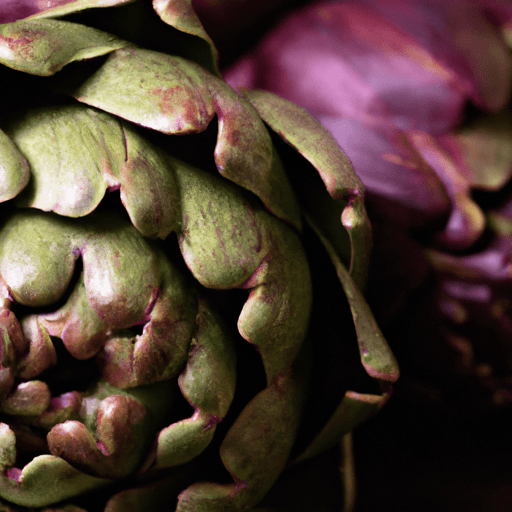Baby Artichokes: A Culinary Delight
Artichokes are a versatile and delicious vegetable that can be prepared in a variety of ways, but have you ever tried baby artichokes? These small, tender vegetables are packed with flavor and make a delightful addition to any meal. In this blog post, we’ll dive into the world of baby artichokes and explore their taste, common uses in cooking, nutritional value, and some interesting history and facts.
Taste
Baby artichokes have a milder and sweeter flavor compared to their larger counterparts. Their tender leaves and heart give a delicate, slightly nutty taste that is reminiscent of artichoke but with a subtle touch. This makes them an excellent addition to dishes where you want to highlight their unique flavor without overpowering other ingredients.
Cooking Uses
One of the advantages of baby artichokes is their versatility in the kitchen. They can be used in numerous ways and are the perfect ingredient for both simple and elaborate recipes. Here are some popular cooking methods and dishes where baby artichokes shine:
- Roasted: Baby artichokes can be tossed with olive oil, garlic, and your favorite herbs, then roasted until golden and tender. The result is a delightful side dish or topping for salads, pizzas, or pasta.
- Grilled: Grilling baby artichokes enhances their natural sweetness and adds a delicious smoky flavor. Serve them as a side dish or toss them into salads or grain bowls for a summery twist.
- Braised: Baby artichokes are fantastic when braised. Simmer them in a flavorful liquid until they become tender, then serve them alongside roasted meats or as a topping for creamy risottos.
- Stir-fried: Slice baby artichokes thinly and stir-fry them with other vegetables and your favorite protein for a quick and healthy meal. Their lovely tender texture makes them an excellent choice for stir-fries.
Nutritional Value
As with most vegetables, baby artichokes offer various nutritional benefits. They are a great source of fiber, vitamin C, vitamin K, folate, and minerals such as potassium and magnesium. These nutrients play essential roles in supporting a healthy immune system, maintaining proper digestion, and promoting overall well-being.
Additionally, artichokes are rich in antioxidants, which help protect the body against harmful free radicals. Including baby artichokes in your diet can contribute to a well-rounded and nutritious eating lifestyle.
History and Fun Facts
Artichokes have a long and fascinating history that dates back centuries. They were first cultivated in the Mediterranean region and were highly prized by ancient Greeks and Romans for their medicinal properties. Over time, they became a popular ingredient in culinary traditions across Europe and eventually spread to other parts of the world.
Did you know that the baby artichoke is not actually a distinct variety of artichoke? The “baby” designation refers to the smaller size of the vegetable, which is harvested before it fully matures. Baby artichokes are typically the lower parts of regular artichoke plants and are plucked to encourage the growth of larger artichokes.
In conclusion, baby artichokes are a delicious and versatile vegetable that deserves a place in your kitchen. From their delightful flavor to their numerous cooking uses and nutritional value, these small wonders offer a delightful culinary experience. So, next time you come across baby artichokes in your local market, embrace their charm and get creative in the kitchen. Your taste buds will thank you!
*Note: The images used in this post are for illustrative purposes only.
Baby Artichokes
Origin: Baby artichokes are a smaller variety of the mature Globe artichoke (Cynara cardunculus). They are typically harvested from the same plants as mature artichokes but are picked before they fully develop. It is believed that artichokes originated in the Mediterranean region, particularly in Southern Europe and Northern Africa.
Common Uses: Baby artichokes are extremely versatile in the kitchen. They can be roasted, grilled, sautéed, steamed, or braised. They are often marinated, pickled, or used in salads. Due to their tender texture, they require less preparation compared to mature artichokes and can be eaten whole, with the exception of their tough outer leaves.
Nutritional Benefits: Baby artichokes, like their mature counterparts, are a good source of dietary fiber, vitamin C, vitamin K, folate, and antioxidants. They also contain minerals such as magnesium and potassium. Additionally, artichokes are known for their potential cholesterol-lowering effects and their ability to support liver health.
Unique Properties: The most significant characteristic of baby artichokes is their small size, which makes them more tender and easier to cook. Unlike mature artichokes, baby artichokes do not have the inedible choke, making them simpler to prepare and eat. They also have a slightly sweeter flavor compared to the larger variety.
Historical Significance: Artichokes have a long history dating back to ancient times. They were highly valued by the Greeks and Romans for their taste and medicinal properties. During the Renaissance, artichokes were considered a luxury item for the wealthy. Today, they are widely cultivated and enjoyed in many cuisines around the world.




Use the share button below if you liked it.
It makes me smile, when I see it.